Integration

In Presidential Election, “Self-Deportation” Goes Down to Defeat
It did not become certain until late Tuesday night that President Obama would win re-election. But for Mitt Romney, the campaign may have been lost during the Republican primary, when he cited “self-deportation” as the solution to our nation’s immigration problems. With the post-election dust now settled, it has become increasingly clear that supporting the idea is not only bad as a matter of policy, but also a losing political strategy. Read More
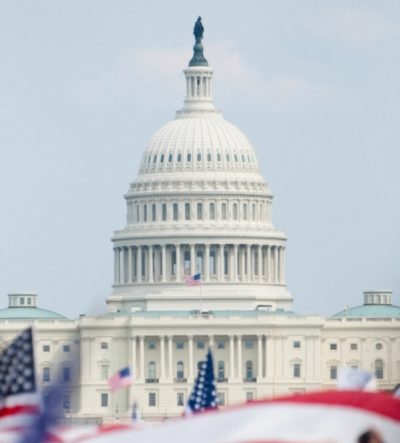
Elections Demand a New Way Forward on Immigration
Even before the election was called for President Obama last night, pundits and pollsters were remarking on the fact that immigration—or more specifically, anti-immigrant policies—were a death knell for Mitt Romney. Today, the analysis of whether and how the Republican party recovers from its devastatingly poor showing among Latinos—the key demographic group of the 21st century—is also focusing on immigration. CNN’s David Gergen noted that immigration reform would become a reality because Democrats want it and Republicans need it; even Fox news commentators grumpily acknowledged that immigration reform has got to be on the table now. Read More
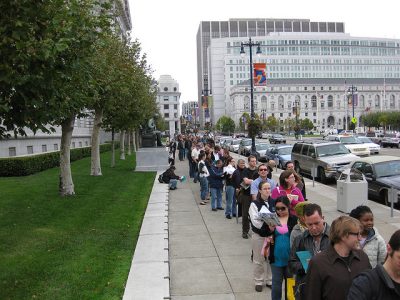
A Long Journey to the Voting Booth
For some people, this year’s journey to the voting booth started years ago, in El Salvador or China or Cameroon, when it became clear that they had to leave their country and start over in America. For those people, (whom U.S. Citizenship and Immigration Services calls “Americans by choice,”) the journey to the polls has involved hardship, struggle, hundreds of hours learning English and civics, and studying for the naturalization test. They bring not only their vote to the polls, but a reminder to all of us that our precious democracy can only succeed when we believe in this country enough to take the time to vote. Read More

Immigrant Workers Likely to Play Big Role in Post-Sandy Reconstruction
Hurricane Sandy may be gone, but the monumental task of reconstruction remains. In New Jersey and New York in particular, thousands of workers will be needed to rebuild or restore roads, homes, and office buildings damaged or destroyed by the storm. If history is any guide, many of those workers will be immigrants, and many of those immigrants will be unauthorized. Ironically, as they play an outsized role in reconstruction after a natural disaster, immigrant workers will be especially vulnerable to abuse and exploitation by unscrupulous employers. As a result, federal and state officials must be vigilant in ensuring that labor laws are vigorously enforced to protect all workers involved in post-Sandy reconstruction efforts. Read More

Could DACA Have Happened Without Public Engagement at USCIS?
Approximately two months after the program opened, nearly 200,000 individuals have submitted requests for grants under the Deferred Action for Childhood Arrivals (DACA) imitative. It’s still too early to assess the overall success of the program or evaluate the grant rates, but it isn’t too early to take note of the important role that preparation played in making DACA a reality. Read More
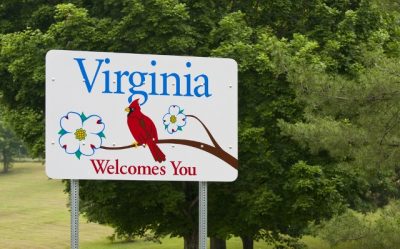
Immigrants Play Key Role in Virginia’s Economy
Recent state-level immigration battles are often characterized by a great deal of negative attention and not enough positive information about immigrants living in those states. Unfounded claims about the costs of immigration overlook the benefits and contributions immigrants make to American communities. Fortunately, some organizations are dedicated to pushing back on the negativity and publishing accurate data about the role immigrants play in state economies. Read More
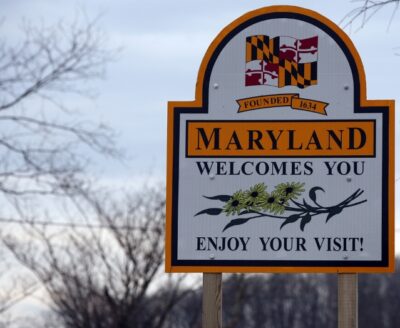
Maryland DREAM Act is a Smart Economic Investment
Education is an investment that yields sizeable dividends over time. Well-educated students go on to become well-educated workers who earn more, pay more in taxes, and are less likely to rely upon public benefits. This is why the DREAM Act, and all of the state-level bills that bear its name, make so much sense. Allowing unauthorized children to graduate from high school and go on to college isn’t simply an act of compassion; it is enlightened self-interest. These children will prove to be far more costly to the state in the long run if they are less educated and living in poverty. Read More

Presidential Debates: Brought to You by an Immigrant
Millions of Americans will tune into tonight’s vice-presidential debate, but few will know the origins of the presidential debate process. While we’ve come to think of these debates as a way to learn more about the candidates vying for our votes, the idea of holding public debates, like so many other great American ideas, can be traced back to an immigrant. While we frequently note that America’s progress over generations has depended on the hard work and ingenuity of past and current generations of immigrants, it’s important to remember that ideas themselves are a benefit sometimes hard to enumerate, but critical to the American experience. Read More

Got Clarity? “Illegal Immigrant” Is More than Just a Term
Over the last few weeks, New York Times Public Editor Margaret Sullivan has been weighing a challenge from fellow journalist and self-described “undocumented immigrant” Jose Antonio Vargas—drop the use of “illegal immigrant” as the Times default description of the 12 million undocumented people in the United States. Sullivan invited and received public comment on the challenge, much of which made subtle and nuanced pleas to use terms that were less insulting and more accurate. This week, calling her decision somewhat anti-climactic, Sullivan recommended that the Times stick with its current style guide because illegal immigrant is a term that is “brief, descriptive, and “gets its job done in two words that are easily understood.” Read More
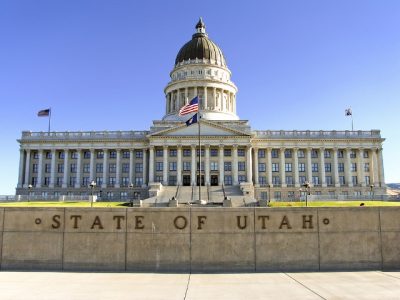
Utah Attorney General Pushes Sensible Immigration Policies
Republican Utah Attorney General Mark Shurtleff has become a poignant and effective advocate for smart immigration policies, including the DREAM Act. On Monday, Shurtleff spoke at the Immigration Law and Policy Conference, in Washington D.C., where he concluded that the “biggest casualty in the immigration debate is the truth.” Shurtleff understands prosecutorial discretion, and is firmly behind the Obama Administration’s recent decisions to exercise prosecutorial discretion for immigrant youth (Deferred Action for Childhood Arrivals, DACA) and in cases where the individuals are not enforcement priorities. Shurtleff went on to describe Utah’s recent immigration legislation, which includes an enforcement law, as well as a provision that creates a state guestworker program. He explained that he is still in conversations withthe federal government about how Utah can exercise prosecutorial discretion for unauthorized “guestworkers” and the employers who hire them. Read More
Make a contribution
Make a direct impact on the lives of immigrants.
